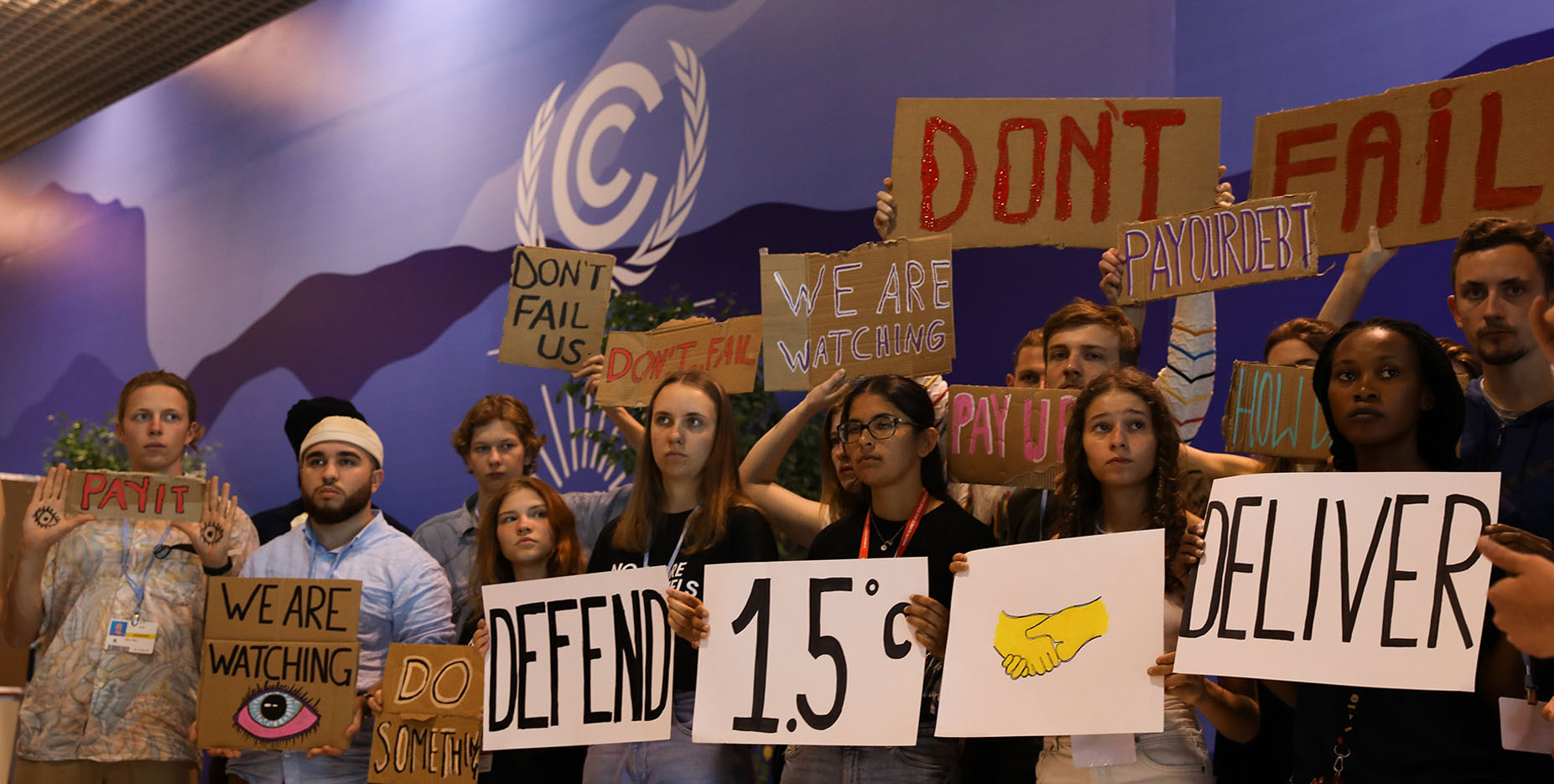
COP27 protestors, November 11 (Credit: Civil Society Actions/Kiara Worth)
When the UN Climate Change Conference (COP27) in Sharm el-Sheikh, Egypt, was launched on November 6, it was already mired in controversy. Activists criticised the country’s human rights record and urged the regime to free political prisoners. Climate protesters were suppressed by Egyptian authorities.
The fossil fuel lobby had a 25 % larger presence than last year, and a report by Scientific American warned that reaching the goal of keeping warming 1.5°C above pre-industrial levels set out in the Paris Agreement was likely a lost cause.
Still, policymakers gathered, with a few notable absences, to discuss how to move forward with their climate targets. The topic that took centre stage at the conference was loss and damage, including funding for poorer nations that suffer the most from climate change despite contributing the least to it.
Some positive developments were made at COP27, including on mangrove and marine protection. The “Mangrove Breakthrough” aims to protect 15 million hectares of mangroves worldwide by the end of the decade. Also, Belgium, Colombia, Germany, Ireland, Japan, the Netherlands, Norway, the UK, and the US joined the Global Offshore Wind Alliance, which aims to accelerate the deployment of offshore wind power.
The French President, Emmanuel Macron, called for a complete ban on deep-sea mining, a practice that both Germany and Spain already oppose.
The UK announced a climate finance scheme for Africa, pledging £200 million for the African Development Bank’s Climate Action Window. UK Foreign Secretary, James Cleverly, said of the deal, “Lack of access to climate finance for the world’s poorest countries was a central focus at COP26 in Glasgow. This £200 million of UK funding is helping us make tangible progress to address this issue.”
Prime Minister, Rishi Sunak, also confirmed that the UK would spend £11.6 billion on international climate finance. Sunak had initially planned to opt out of the conference, but after backlash given that the UK hosted COP26 last year, he attended.
Still, many believed that the weak language on the phase-down of fossil fuels meant that leaders would continue giving a pass to polluting industries.
Coca-Cola’s sponsorship of the event garnered sharp criticism from protesters, given how much the company pollutes worldwide. The CEO of BP and the incoming leader of Shell attended the COP27, and, for the first time, fossil fuel executives were invited to participate in official events. The energy crisis caused by the war in Ukraine has made gas a more palatable energy option, despite its status as a non-renewable energy source, because it emits less than oil and coal.
The conference went overtime, as is common during such contentious negotiations. The European Union delegation threatened to walk out during the final hours. Negotiations finally garnered support for a loss and damage fund aimed at paying for climate-related damage suffered by the most vulnerable countries.
The US reversed its opposition to the scheme, having feared that supporting such a fund would amount to an admission of guilt, which could later lead to legal action. China will contribute to loss and damage funding despite its status as a developing country, as it remains the world’s second largest economy and is expected to soon overtake the US in terms of cumulative emissions.
Pakistan’s role as a fellow Muslim country to Egypt and one that has seen outsize effects from climate change this year, including record heat waves and flooding that left one-third of the nation underwater, helped get nations on board with contributing to loss and damage finance.
However, ten years ago, wealthy nations pledged $100 billion a year for poorer nations to fund climate mitigation and renewable energy projects, but they have fallen far short of providing those funds by tens of billions of dollars.
Despite the feel-good nature of signing another climate pledge that commits to incremental reductions in emissions, many activists were disappointed by the outcome. Before the loss and damage fund was finalized, Nathan Thanki, a climate activist with the Global Campaign to Demand Climate Justice, posted a video on Twitter stating, “What it [COP27] amounted to is [rich countries] telling the rest of the world, “We’re going to keep polluting, we’re going to keep digging up fossil fuels as we’ve done for 200 years, and we’re going to keep growing our economies in that way, but you can’t do that.’”
Sarah Sakeena Marshall,
American University’s School of Intl Service,
The Muslim News Environmental Columnist